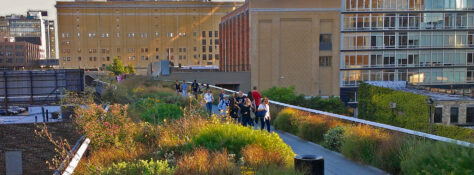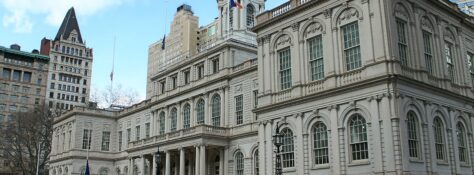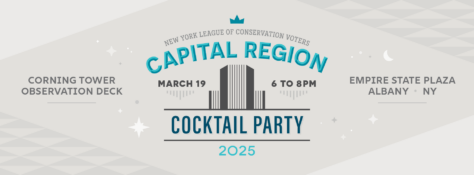Event
Over 100 regional business leaders, elected officials, environmentalists, and NYLCV supporters, gather to celebrate environmental progress in the region and strengthen our shared commitment to New York’s environment.
Learn MoreOn August 13, New York City announced the release of Greater Greenways: The New York City Greenway Plan, a milestone achievement and a top New York League of Conservation Voters priority. Required under Local Law 115 of 2022, which NYLCV strongly supported, the plan is the city’s first comprehensive greenway vision in more than 30 years.
Learn MoreEvent
The New York League of Conservation Voters is thrilled to invite you to our 2025 New York City Cocktail Party! Join us on Tuesday, September 30th, 6pm-8pm at Malibu Farm in Lower Manhattan for an evening of drinks, light refreshments, and great conversation along the East River.
Learn MoreEvent
Join us for a summer kickoff networking event at the beautiful Brooklyn Grange rooftop farm, located in the Brooklyn Navy Yard.
Learn MoreNews
"We were fortunate this year to have a field of candidates with a strong track record on environmental action. In many races, we had to choose between contenders who all demonstrated serious commitments to climate; in those instances, we focused on candidates who have consistently delivered real results,” said Julie Tighe, President of the New York League of Conservation Voters. “In the mayoral race, Andrew Cuomo and Brad Lander rose above the rest. Governor Cuomo was instrumental in passing the Climate Leadership and Community Protection Act and made generational investments in clean air, clean water, and parks. Comptroller Lander has been a leader on climate finance, driving fossil fuel divestment from pension funds, helping to pass the nation-leading plastic bag ban and Styrofoam restrictions, and championing environmental causes throughout his time on the City Council. We are proud to endorse this group of candidates and look forward to working with them to continue advancing environmental progress at the local level.”
Learn MoreEvent
Our Capital Region Chapter is actively engaged in addressing environmental challenges in Albany, Schenectady, Saratoga, and Rensselaer counties. Our Cocktail Party is an exciting opportunity to network with fellow environmentalists and celebrate progress in the region!
Learn MoreEvent
Our Long Island Cocktail Party will bring together local business leaders, elected officials, community groups and members of the public to celebrate our shared commitment to environmental protection and clean energy in the region.
Learn MoreEvent
Our Buffalo Cocktail Party will bring together local business leaders, elected officials, community groups and members of the public to celebrate our shared commitment to environmental protection and clean energy in Central and Western New York.
Learn More






